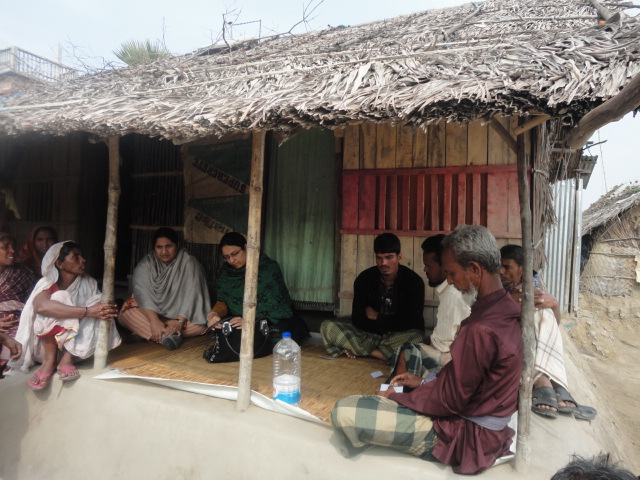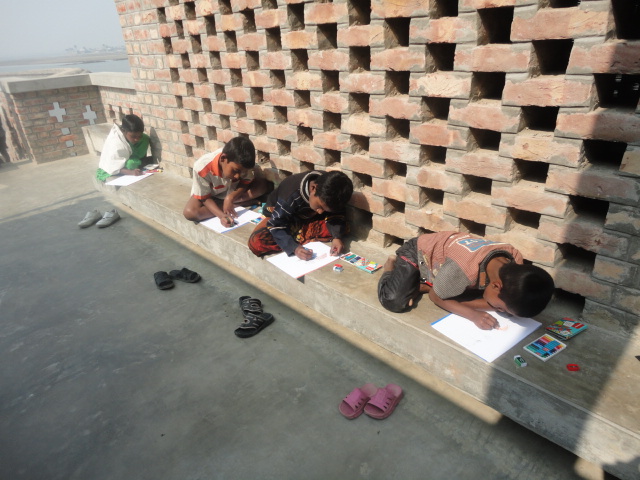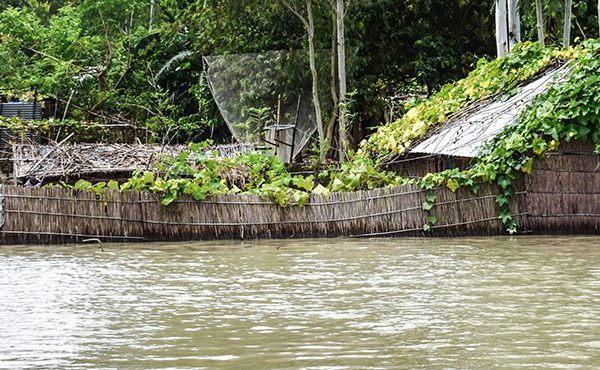Reading Time: 3 minutes
Due to its geographical location, Bangladesh faces various types of slow and rapid onset of natural disasters. In the coming years, the country will have to bear the increasing brunt of climate change. While relief work is swiftly undertaken by many organisations, there is work to be done on the long-term social and psychological rehabilitation of the people, particularly children living in the affected regions.
Due to its geographical location, Bangladesh faces various types of slow and rapid onset of natural disasters. In the coming years, the country will have to bear the increasing brunt of climate change. While relief work is swiftly undertaken by many organisations, there is work to be done on the long-term social and psychological rehabilitation of the people, particularly children living in the affected regions.
A team of researchers from BRAC Institute of Educational Development (BIED) recently conducted a qualitative study on the children and families of disaster-prone areas of Bangladesh. It was published in the International Journal of Disaster Risk Reduction on September 2015.
Below, Syeda Rezwana Akhter, lecturer at BIED and one of the authors of the paper, talks about the research process.
Why did you decide to conduct research on this topic?
We had conducted a research previously on disaster risk reduction that studied the issues of community resilience in the wake of natural disasters. We identified some gaps in the field of research, such as issues related to the vulnerability of children and the extent of disaster preparedness for women and children. This new study looks into these gaps by collecting behavioural responses of children and their families pre and post disasters.
Can you briefly tell us about the methodology of your research?
From the experience of the previous study, literature survey, as well as discussions with experts, we selected areas which are affected by floods, water logging and cyclones. We chose Kurigram in northern Bangladesh to study flood-prone areas, and Shatkhira in the south-western part to study water-logged and cyclone-prone areas. After an initial survey, we conducted a number of focus group discussions, in-depth interviews, and phenomenological interviews with the participants.
What were some of the challenges you faced while conducting the research?
One big challenge was building rapport with the children who participated in the research. It took time and patience to retrieve substantial data from them. Originally, we had planned to collect data through free drawing by the children. Since free drawing is not encouraged in most of our schools, we received very little output. We decided to shift to in-depth interviews instead.

Focus Group Discussion at Shyamnagar, Shatkhira
What are some of the future recommendations cited by the paper?
There needs to be a lot more cooperation amongst local communities and between the regional and national level organisations. Intensive work needs to be done on areas of disaster preparedness. Additionally, a lot of follow-up work needs to be done on children affected by trauma resulting from a disaster as well as children who had to drop out of schools in its aftermath.
Major findings from the research:
- There is an immense psychological impact on children who face natural disasters, with many of them suffering from trauma
- As the same amount of relief is rationed to each family regardless of the number of family members, many families marry off young girls so that they can get separate relief supplies; the rate of child marriage, therefore, increases in the aftermath of a natural disaster
- Children’s schooling is largely disrupted, especially in areas which face flooding and water logging; the families and children in one of the areas had lived on the embankment for up to 18 months at a stretch
- Girls living on the embankments would not drink water during the day for fear of having to use shared toilets, which caused severe health issues
- Lactating mothers did not get proper nutrition, which also affected their children’s nutrition and physical development
 “Some of the children clearly could not accept the huge shift in their lives. They once had house helps in their homes, but now they have to go to other households for food. One child asked during an interview, “Will we never be able to go back home again?” – Syeda Rezwana Akhter
“Some of the children clearly could not accept the huge shift in their lives. They once had house helps in their homes, but now they have to go to other households for food. One child asked during an interview, “Will we never be able to go back home again?” – Syeda Rezwana Akhter
The research paper was authored by Syeda Rezwana Akhter, Ratan Kumar Sarkar, Mitul Dutta, Roxana Khanom, Nasima Akter, Md Raihan Chowdhury, and Dr Mainus Sultan.
Tamoha Binte Siddiqui is communications and advocacy officer, BIED.






